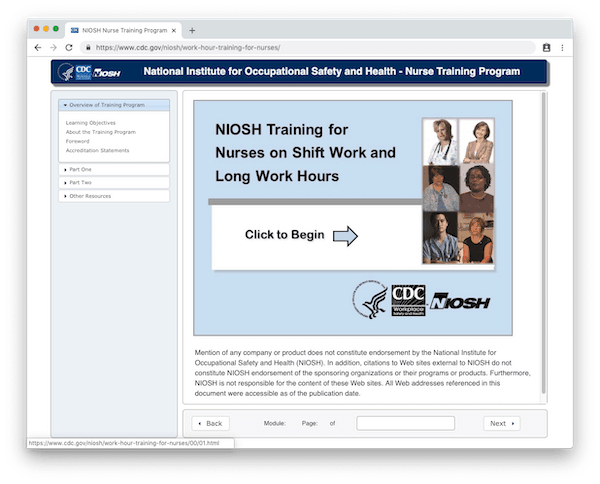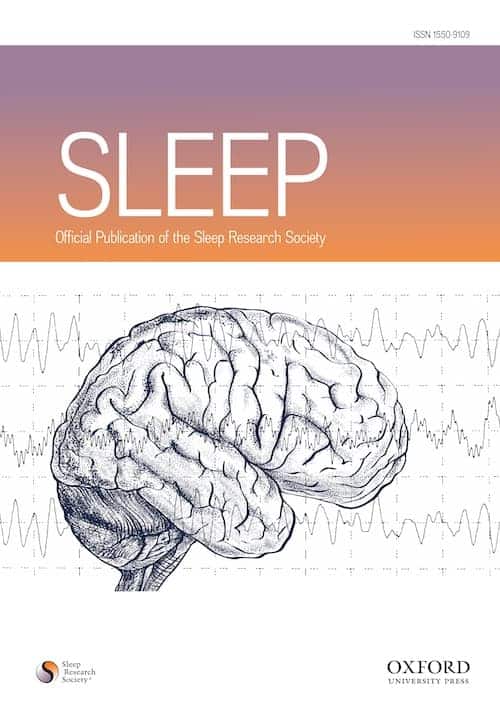Fatigue and sleepiness on the job significantly raise the odds of officers drawing citizen complaints during their shift, according to a newly published study by a team of sleep specialists.
Their first-of-its-kind analysis finds that public complaints are roughly seven times more likely to occur on shifts with a traditionally high probability of officer tiredness—primarily, night shifts.
And where back-to-back nighttime shifts are interspersed with a mandatory off-duty daytime court assignment, the odds of provoking a public complaint on the next shift are “further increased,” the researchers report.
The study was led by Samantha Riedy, a PhD candidate in experimental psychology and a graduate research assistant at the Sleep and Performance Research Center at Washington State University (WSU). Joining her were Dr. Drew Dawson, a prominent sleep investigator with Central Queensland University in Australia, and WSU’s Dr. Bryan Vila, the foremost authority on the impact of sleep deprivation on police performance whose dataset from his classic “Tired Cops” research was used in this study.
SLEEP/WORK ANALYSIS
The researchers applied a sophisticated “biomathematical” analysis to the sleep and work patterns of 144 uniformed officers from two US municipal PDs across a study period of up to 26 weeks. The subjects ranged in age from 23 to 59 and nearly 90% were male.
In all, more than 15,700 shifts and 137,000 work hours were examined, including 5,588 night shifts (defined as any shift that included three or more hours between 2300 and 0600).
Extensive prior research had already firmly established a connection between fatigue and shift work, due to disrupted, shortened, and generally poor-quality sleep. Riedy’s team wanted to explore a practical aspect of this: to what extent are fatigue and sleepiness affecting officers’ interactions on the job, as reflected in public complaints?
TELLTALE PATTERN
Amid the flood of data, the researchers found only 37 complaints against 25 officers. Overall, this suggests commendable street performance even among officers who predictably would have been tired during their shifts.
But where complaints were filed, a convincing pattern emerged. Riedy explains:
- About 35% of the shifts examined were night shifts. Yet officers working nights disproportionately drew more complaints than officers on the other shifts combined.
- 88% of the complaints filed against these officers were lodged not on their first night of late work but when they were in a string of back-to-back night shifts.
- Working daytime court hours between consecutive night shifts “significantly increased” the odds of receiving a complaint.
“This [pattern] is not surprising,” Riedy writes, “given that night shift work is associated with greater fatigue; daytime sleep between night shifts tends to be reduced and less restorative than nighttime sleep; and off-duty court hours further restrict sleep between consecutive night shifts.” Summary conclusion:
“Greater fatigue, greater sleepiness, and less sleep in the 24 hours prior to a shift increase the odds of a public complaint.”
Samantha Riedy, PhD Candidate in Experimental Psychology & Graduate Research Assistant at the Sleep and Performance Research Center at Washington State University (WSU)
LOOKING AHEAD
n discussing limitations of her study, Riedy acknowledges that factors other than fatigue may be influential in generating the abundance of complaints against night-shift officers, including the very nature of night-shift work. She explains:
“Nighttime interactions between the public and police tend to have a higher potential for violence, and nightshift officers are more likely to receive calls about public intoxication, inappropriate conduct, domestic disputes or violence, and fights/brawls than day-shift officers,” exposing them disproportionately to known incubators of suspect dissatisfaction.
The nature of complaints tallied in this project “was not available,” Riedy says, so a comparison between daytime and nighttime complaints was not possible.
Even so, she points out, the study found that “working court hours between consecutive night shifts increased the odds of public complaints over consecutive night shifts alone, [and] this result suggests that sleep loss and fatigue have an effect separate from the nature of night shifts.”
More research is needed to further illuminate the fatigue/complaint relationship and to guide changes in policy and practices that might reduce the risk involved, Riedy says. Her in-progress dissertation will in part address the relationships between fatigue and job performance.
Meanwhile, measures to improve sleep for officers working nights can be pursued, such as establishing night courts that officers can service while on duty or designating napping rooms they can used while waiting for daytime court calls while off-duty.
Riedy says that a highly regarded online educational program from the National Institute for Occupational Safety and Health that helps nurses better manage shift work is currently being adapted for police by WSU Sleep Center researchers Drs. Lois and Stephen James.
Another potential she cites could be a departmental “hazard identification system” that monitors for fatigue-related errors and incidents, offers officers adequate rest-break opportunities on duty, and helps them maximize effective sleep practices when they’re not working.
While not included specifically in the study, Riedy suspects that other common sleep robbers—moonlighting and overtime—play a significant role in fatigue-related complaints too. “Increasing work hours tends to decrease sleep opportunities,” she told Force Science News.
Riedy’s study, titled “U.S. Police Rosters: Fatigue and Public Complaints,” is published by the journal Sleep. Click the button below to view a free abstract along with ordering details of the highly technical full copy of the study.
Our thanks to Dr. Lois James, an assistant professor at Washington State University., for her help in facilitating this report. Dr. James, a leading researcher on law enforcement-related issues, was recently the keynote speaker for the annual Lewinski Lecture at Minnesota State University, Mankato. Along with Dr. Stephen James and Dr. Bryan Vila, she is author of an earlier study, “The impact of work shift and fatigue on police officer response in simulated interactions with citizens” that appeared in the Journal of Experimental Criminology.



